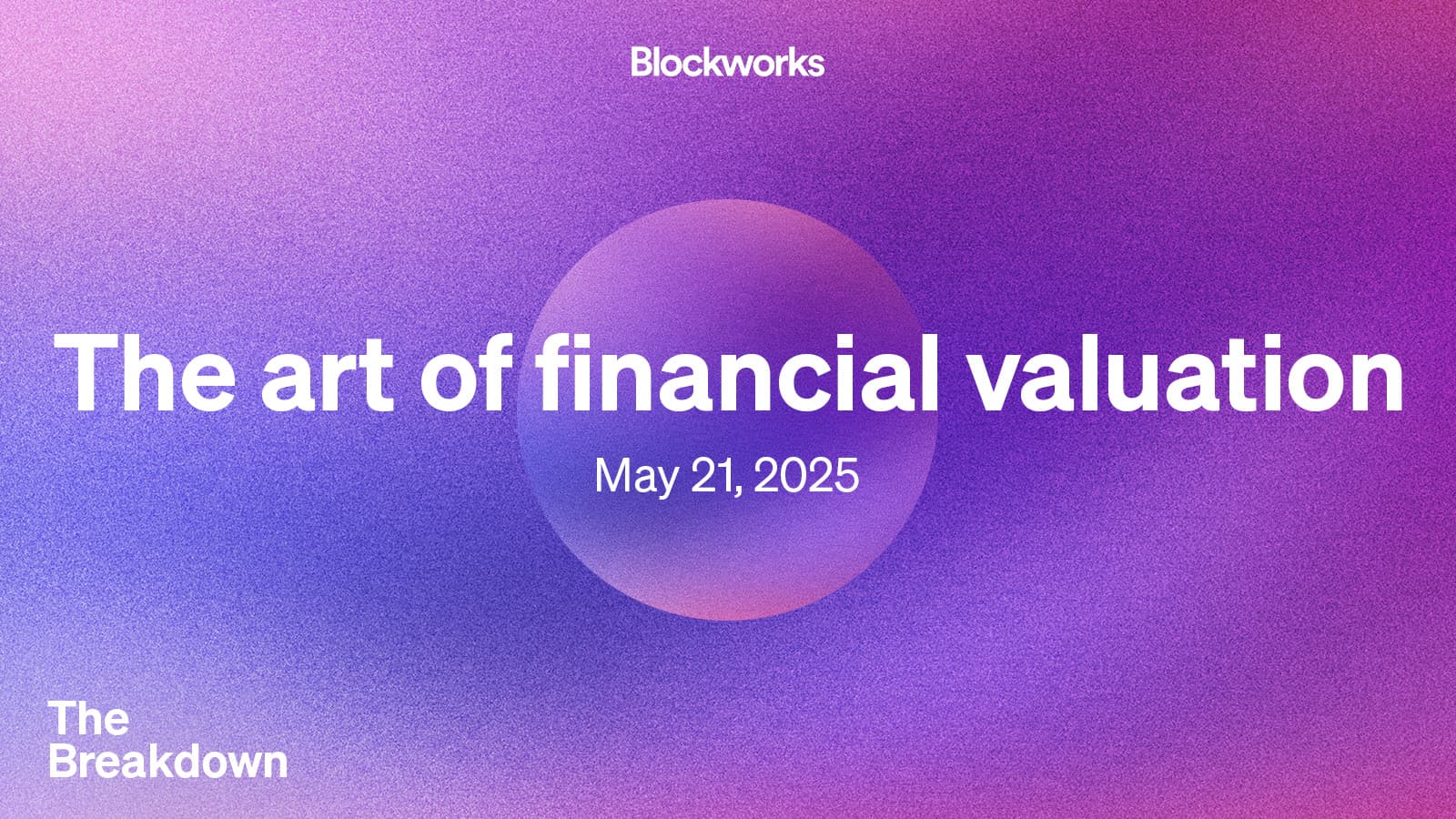Crypto Cash Flows: To Discount or Not to Discount?

Traditional finance clings to discounted cash flows like a security blanket—but crypto laughs in volatility.
Why old-school models break down
With 24/7 markets and hyper-speed yield farming, applying legacy valuation methods to crypto is like using a sundial to time a rocket launch. Projects compound at rates that’d give a CFA nightmares.
The case for throwing out the rulebook
When APYs swing 30% in a week and governance tokens moon on meme hype, discount rates become performance art. DeFi protocols reinvent cash flow mechanics daily—while Wall Street still faxes settlement instructions.
One hedge fund manager’s ’adjusted DCF model’ now just tracks Elon Musk’s tweet frequency.
But crypto is different, right?
On the most recent episode of the Empire podcast, crypto investor Tom Dunleavy predicted that the fees people pay to use layer-1 blockchains like ethereum “are effectively going to zero.”
That made me double-check the title of the podcast — “The Bull Case for Ethereum” — because that sounds like the ultimate bear case for a cash flow-minded investor like myself.
But Dunleavy thinks I’m doing it wrong: When valuing a layer-1 token like ETH, “revenue and cash flow is the exact wrong way to think about it.”
Instead, L1s should be valued “as a percentage of assets that will come onchain at some point in the future.” (“Theoretically,” he adds.)
He might be right about that, I don’t know — and he might also be right that the price of ETH will be correlated to the amount of assets Ethereum hosts (although that remains speculative).
But to argue that the value of ether is based on anything other than its future cash flows is to argue that ether is exempt from Buffett’s dictum about stocks, bonds and businesses.
Lots of people think it should be.
The “Ethereum investor” Ryan Berckmans, for example, argues the case for ether by refuting the idea that it’s a business selling blockspace: “What Ethereum sells is freedom and global prosperity.”
Maybe so — but how else would you measure an investment in freedom and prosperity if not by forecasting how much people will pay to access it?
Berckmans may have implicitly conceded the point later in the podcast: “Value accrual will happen, yes, through fees in the long term.”
That about sums things up for me: Buy a crypto token for any reason, sure — freedom, prosperity, vibes — but the only way to invest in a token is on the assumption that its current price is justified by its future cash flows.
In the meantime, no one says the price of that token will be correlated to REV or any other financial metric — and crypto assets with no prospect of future revenue (like bitcoin) are free to be priced however people choose to price them.
But I’d argue that any asset that collects fees from users (as ETH does) is a financial asset and therefore subject to Buffett’s dictum that cash flows determine value.
If so, crypto investors might want to get into more of a DCF state of mind.
- The Breakdown: Decoding crypto and the markets. Daily.
- Empire: Crypto news and analysis to start your day.
- Forward Guidance: The intersection of crypto, macro and policy.
- 0xResearch: Alpha directly in your inbox.
- Lightspeed: All things Solana.
- The Drop: Apps, games, memes and more.
- Supply Shock: Bitcoin, bitcoin, bitcoin.

